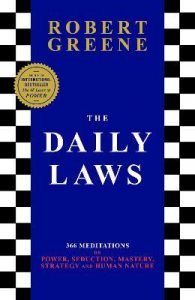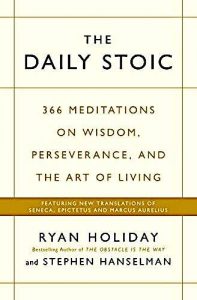It is said that Pythagoras taught that the number three was the first true number. That it is the number of good fortune, and it is the first number that forms a geometrical figure – the triangle. It is also the number of our eyes colour receptors – RED, YELLOW, and BLUE.
Life itself has three parts – birth, life and death. Our bankers, ever afraid of fraud, created a banker’s 3 with a flat “top” to stop it from being changed into an eight. And many religions have Triple Gods – The Father, The Son and The Holy Ghost, in Christianity and the Hindu Trimurti with Brahma, Vishnu, and Shiva.
So today, again, we have three fast, easy to read, potentially life-changing ideas to ponder, raise questions and absorb or reject. You won’t be bored.
Let’s get into it.
1. In Times of Change, There is Fallow Ground.
I had an excellent crop of sweet corn this summer. It took longer to “fruit” than usual, but it came with abundance when it arrived. So much so that by the end, I was almost sick of sweet corn. Almost sick of watching that butter melt over those golden husks touched with a hint of sea salt that fifteen minutes earlier at been still attached to its mother plant. I will look forward to next summer.
When the last husk was removed, I pulled up the plants and let the earth rest. I had too. The soil needed time to replenish itself and rejuvenate. I do this to ensure a good crop next time. I dug in compost and manures to replenish the earth and given the soils organisms and micro animals and insects time to do there work below the ground to create goodness for my next season. I would have to wait some months before planting again. Depending on that state of the soil will determine how I help it regenerate.
Fallowing is an ancient farming practice and part of sustainable land management. It can be a controversial subject in some circles because a field left unplanted does not turn a profit. Our modern farmers ever pressured to produce more pump up the soils with fertilizers which can ultimately lead to more deficient soils and crops. However, new studies have shed much light on the benefits of fallowing crop fields and gardens.
“We are born owning many qualities; some we may never know we possess. It all depends on what kind of run God gives us.”
Colleen McCullough – Morgan’s Run
When we deal with the inevitable change that life always gives us, there is a time of fallow ground. It can come through personal choice, or more often because of events outside our control, like sickness, external political forces or accident, to mention just a few.
There is always a time between what was and what is yet to be. It can be a frustrating time. We are used to the immediacy of life, and unlike any other animal, we are aware of life’s impermanence. We feel the clock ticking. Yet the fallow times can be the most useful and ultimately most rewarding. It allows time for the reinvigorating of the soils of our foundations. To discover hidden abilities; To rebuild the soils with new ideas, education formal or informal. To Challenge, re-evaluate, and mature our philosophies. To dig below our lives’ surface to use the hidden creatures of our being to rebuild our foundations to bring forth new crops in the future.
The Fallow time can be a dangerous time. It is when the creatures of the underworld can come to the surface. The things we have been avoiding. The difficult things, the unknown buried things. It can be a time of great emotional and life upheaval. It is a time to be cautious, gentle and kind to ourselves. Bring material and support from outside ourselves to support and feed those creatures of the deep. So they will rebuild and nourish the soil ready for new growth. If done well it can exceed the crops of yesteryear. If done badly can lead to destruction.
Depending on the crop that was grown, soils would are rested for different times. In my case, a few months but can be one to five years. So, depending on what we were doing before the change of life will determine the rebuilding time. Some farmers would divide their land into two— one to grow a crop and rest and restore the other. We may have to plant a “crop” in part of our field to sustain life – perhaps what is known as a green fertilizer that is later dug back into the ground to help replenish it.
Regardless of the change, there is always a fallow time. A time of rebuilding and nurturing; It is essential to acknowledge its need. It is not a time for neglect as the winds of change could come along and blow your topsoil away, leaving you baren dirt with little to work. If left to long, a fallow field can become overgrown and full of weeds, making it doubly hard to begin again.
Resources:
For a more in-depth discussion, see The Secret of Letting Go
2. It is What We Mostly Do That Matters.
“Progress not perfection” is a line in the Denzel Washington movie The Equalizer. It is said to a fellow worker by Washington’s character. They are encouraged to go in the direction of their heart’s is calling. The co-worker struggles with his weight as he attempts to diet to be the weight required to be a security guard.
Perfection is a hard taskmaster – it is never happy and never fulfilled, yet it has nothing to do with our lives’ trajectory. It is what we mostly do that makes a difference.
It is not the occasional ice-cream or late night or poor choice that determines where we end up; it is what we mostly do. If we control 2 out of every three meals of the day more than likely, we will do well in our health. If we exercise most days, we can do well. If we mostly care and respect those friends and family around us, they will forgive us for the occasional mistakes, outbursts of frustration, and anger. If we mostly put some savings away and not waste money on trivialities, our bank balances will increase. If we mostly choose the good things in life – life will be kind to us.
Now we cannot mostly be an upright person and then murder someone and not suffer the consequences. So, let us be incredibly careful about those occasional lapses in judgment because some “sins” have more significant implications than others. And some mistakes have ramifications on the rest of life – so thinking before we act can be challenging but essential.
Resources:
3. A Rest Day.
Six days thou shalt do thy work, and on the seventh-day thou shalt rest: that thine ox and thine ass may rest, and the son of thy handmaid, and the stranger, may be refreshed.
Test Cricket for cricket enthusiasts is seen as the ultimate game of endurance and ability that lasts for five days of play. It was traditional to have a rest day after the 3rd day of play. The rest day was often a Sunday.
One of my first jobs was working for a breakfast cereal manufacturer. It was a sales role. I was required to call on around 100 supermarkets over about four weeks. We would try to get most of our work done but Thursday lunchtime as the shops would close at noon on Saturday and the end of the week was their busiest time. They were closed Saturday afternoon and all Sunday – probably organized that way initially for religious reasons. Most Western countries had Christian origins, and Sunday was seen as a day of rest.
I was born into a Seventh Day Adventist home. Adventism is one of the many protestant Christian faiths that came into being due to the reformation of the catholic church. One of their many differences was that, unlike most Christians, they saw Saturday as the day of rest. They were celebrated very much like the Jewish Sabbath. It starts at sunset Friday night and would conclude sunset Saturday night. We were not allowed to do any work, watch tv or any so-called “worldly activities”.
I am no longer a member or adhere to that faith; however, I have adapted and absorbed many of the principles into my personal philosophy. One of the most important is the concept of a time of rest.
Our current world lifestyle of twenty-four hours a day is a ridiculous way of living. We wonder why we are stressed, why our coffee consumption is at an all-time high, road rage is on the increase, and we look for ways to distract ourselves. Yet, the simple answer may be a time of rest. A time away from the every day.
It is easy if there is a rule or law that forbids a specific activity. However, we can choose to implement lifestyle changes that encourage downtime and times of rest. We can make up our own rules.
I have a day where the computer doesn’t go on, I turn off phones and don’t do any regular work activities. I am mentally and physically better off.
Think about it. In the past, no one starved to death because they couldn’t buy food on a Saturday afternoon. No garden looked ugly because they could not purchase seedlings at 9 pm Sunday night. Life was organized around what was going on. We saw the more prominent business players get more significant, and the smaller ones disappeared as we headed towards 7-day trading.
Now I am not advocating going back to the so-called “good old days” because not everything was good, and that horse bolted a long time ago. But there are some principles that we can use to invest our lives with greater meaning. We can take charge of how we run our lives. We can decide that an outing is not going to the shopping mall on the weekend to buy an item to impress people we don’t like with things we don’t need. We can decide to go to the park or spend time actually with our families or indeed spend some time alone.
I was not surprised by reading Dan Buettner – The Blue Zone, a book that looks at lifestyle habits and Longevity, to discover that Seventh Day Adventists are listed as one of the five examples. They emphasize health and a day of rest, and a purpose for life. They outlive the average American by at least a decade.
So, a day of rest – a rest day – worth the thought.
Resources:
The Blue Zone. Dan Buettner
Tell next Time…







